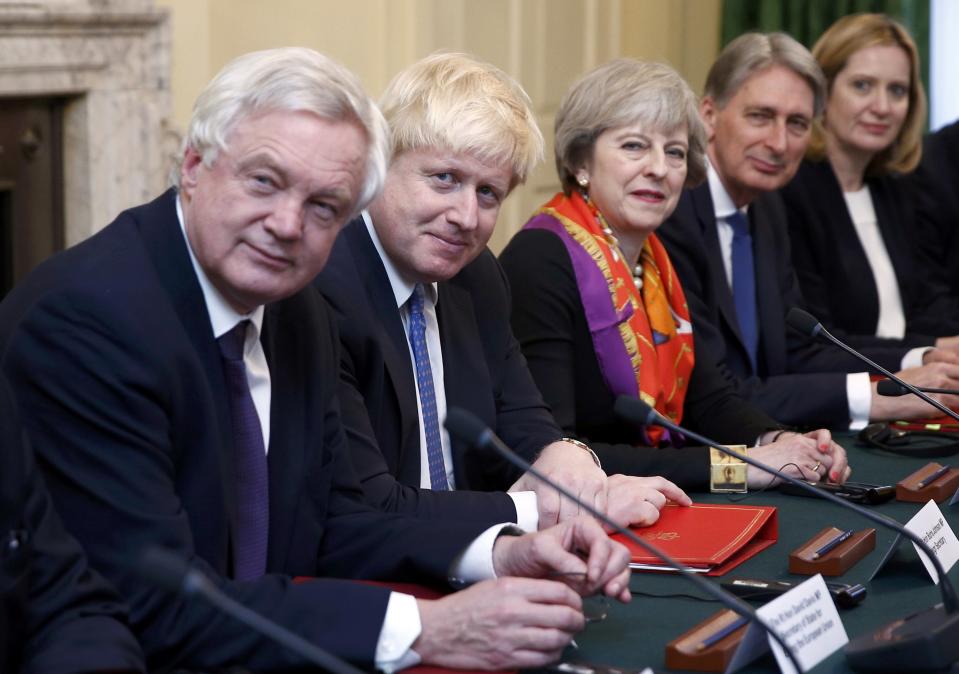Business lobbying over Brexit isn't working - here's why

What has happened to big business’s almost magical influence over Westminster?
For so long its lobbying powers have been admired and admonished in equal measures, with the Conservatives often declaring themselves on the side of business come election time.
But now with a hard Brexit seemingly edging closer, business leaders are finding their calls for a change of direction falling on deaf ears and lobbying powers crumbling before their eyes.
Theresa May has seemingly put controls on immigration ahead of the interests of business and the economy. The increasingly desperate cries from CEOs and umbrella bodies like the CBI is a sign of how little effect their private meetings with David Davis and his Department for Exiting the European Union are having.
MORE: FTSE 100 chiefs’ fury at No 10 letter backing ministers on Brexit
To add insult to injury, news has emerged that UK business leaders have been encouraged by PR mandarins of the government to sign a letter supporting Brexit. However, unsurprisingly they do not appear to be queuing up to do so.
The markets show what industry believes: Brexit is bad for business. All the strong UK sectors of aviation, electronics, finance, pharmaceuticals and automobiles stand to lose out under Brexit. The government has its Brexit vote and mandate and appears to be largely disregarding business in its negotiations.
Since the Brexit vote, sterling has fallen 20% against major currencies. This is a vote by markets that the UK economy and business will suffer as a direct consequence of leaving the EU.
Sterling depreciation means that outward investments have to pay 20% more to acquire a business, while inward investors receive a 20% discount.
News that outward investment in acquisitions has doubled in the last quarter is even more alarming. It means that sterling-based buyers are willing to pay a 20% greater premium compared to before Brexit to hedge their bets by investing outside the UK.
Worse still, the 20% discount on inward investments is not attracting the foreign buyers one might expect.
MORE: Three threats (and three opportunities) Brexit will bring to Britain’s businesses
Silicon Fen, home to Cambridge’s top technology businesses, has been plundered with Aveva being acquired by French-based Schneider Electric in a £3 billion deal following Softbank’s acquisition of Arm Holdings.
But outside technology companies the 20% discount appears insufficient to entice businesses to buy into the UK.
Our Brexit politicians have so far shown that they were rather better at selling the benefits of Brexit to the electorate than delivering on the promises.
As for Brussels, their bureaucrats are defending their own empire; if more countries leave the EU then budgets will reduce and so will the Brussels establishment.
Yet the EU negotiating team are hardly operating in their members’ interests as barriers to trade with the UK will drive up their costs and reduce demand.
MORE: Foreign firms are waiting to pounce on UK post-Brexit for company bargains
Brussels is likely to remain inflexible unless its members intervene, read: France and Germany.
Angela Merkel has her own election to fight and will not change her stance before that is settled, while French President Emmanuel Macron remains seemingly unconcerned and is scarcely likely to intervene as a strong pro-European.
Indeed, Macron thinks France will benefit in industry and trade gains from UK’s Brexit than it will lose.
And with Jeremy Corbyn hardly the most encouraging voice for business that Labour has seen as a leader, it leaves firms with nowhere to go.
Brexit is bad for business in both the UK and Europe. In turn this will mean weak economic performance in the UK, which usually results in a change of government. However, from a business perspective that is scarcely attractive, both in view of Corbyn’s current policies and the party deputy leader’s past comments which have seen him question whether capitalism is working.
All in all, business is in a difficult position and for once the UK government is not listening.
John Colley is professor of practice in the strategy and international business group at Warwick Business School, and a former MD of a FTSE 100 company.

 Yahoo Finance
Yahoo Finance 

